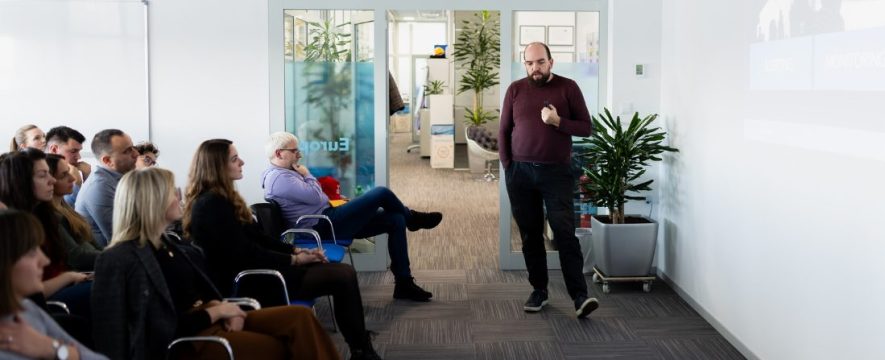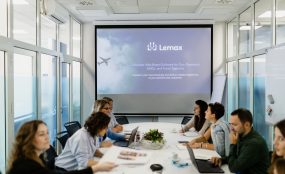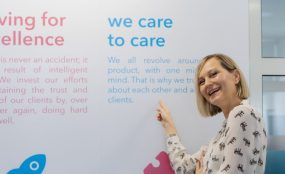Building a digital product is a thrilling, fast-paced game. But in the realm of a B2B SaaS, particularly for a vertical niche like tour operators, it can be quite challenging. Understanding the intricacies of the tour operator industry and having adequate knowledge management is essential for building a product that truly resonates. Domain knowledge can be your game-changing ace in the hole.
The Complexity in the Tour Operator Business
Tour operators, situated at the core of the travel industry, manage a complex business landscape characterized by a lack of standardized industry practices. They fulfill their role by offering a diverse array of services, ranging from individual tours to comprehensive travel packages that cover various destinations, activities, accommodations, and modes of transportation. Also, it’s imperative they handle the complexities of international operations, dealing with regulations, currencies, languages, and cultural nuances specific to each destination, which presents distinct challenges.
Adapting swiftly to ever-changing travel trends and seasonal demands is essential to remain competitive and relevant in the market. When it comes to planning, it is a cornerstone of their operations, as operators coordinate flights, accommodations, transportation, and activities for large groups. Any disruptions can significantly impact customer satisfaction. Compliance with industry regulations, including travel insurance, health standards, data protection, and licensing, is paramount to avoid legal complications and safeguard their reputation.
Tour operators understand that travelers expect seamless experiences. Therefore, any issues during the booking process, the trip itself, or post-trip support can have a negative impact on their reputation.
Now imagine crafting a booking platform for tour operators without ever having wrestled with the complexities of crafting itineraries, juggling diverse customer demands, or navigating the ever-shifting sands of destination regulations. It’s a recipe for features that miss the mark. The lingo does not help either – concepts like “dynamic packaging,” “GDS”, or “bed bank integration” are not common knowledge.
The challenges extend beyond product development; even with industry-expert product managers, the success of a product hinges on effective sales, implementation, support, and customer success efforts – that’s why knowledge management is important. Sales teams must grasp industry intricacies to effectively communicate value, while implementation, support, and customer success rely on domain knowledge to tailor solutions, provide accurate assistance, and drive customer satisfaction.
So, what does all of this mean? Should you only hire industry experts?
Yes, hiring industry experts is a huge advantage. With that being said, it’s important to have the awareness of how difficult it is to find the right people in such a niche industry, and have knowledge management properly set. One should include it as part of the strategy but also think beyond it.
How Do We Leverage Expertise at Lemax
Investing in Onboarding Excellence
A streamlined onboarding process is crucial for the success of new employees. Given the complexity of our domain and product at Lemax, we’ve established comprehensive workshops and tasks to ensure our new hires are fully equipped to excel in their roles and deliver their best performance.
Introducing the Product Specialist Role in Our Team
To tackle this challenge, we introduced a new role in Lemax within the product team – Product Specialist. Product Specialists act as knowledge champions, ensuring everyone has a deep understanding of the domain, products, and services offered. They bridge the gap between the development team (product managers and developers) and customer-facing roles, facilitating the knowledge transfer to end users who actually use the product.
Here are explanations outlining several areas under the Product Specialist’s responsibility.
Dedicating Time to Product Consultations

Product Consultations at Lemax are daily sessions designed to facilitate knowledge sharing and collaborative problem-solving across various teams. These sessions play a crucial role in ensuring that all team members are up-to-date with the product’s features, updates, and industry-specific knowledge, fostering an environment of continuous learning and improvement.
The primary purpose of these consultations is to enhance communication and collaboration among different teams, including product managers, developers, implementation specialists, customer success teams, and sales. This interdisciplinary approach helps in making informed decisions, addressing challenges effectively, and aligning efforts towards common goals.
Held daily, these sessions provide a consistent time slot for teams to engage, discuss ongoing projects, and address any issues that arise. Each session follows a structured agenda to ensure focused discussions, while action items and tasks are documented and tracked. This organized approach ensures that responsible individuals and deadlines are clearly identified, promoting accountability and timely execution of tasks.
A significant aspect of these consultations is the continuous update of our knowledge base. New findings and insights from the discussions are documented and integrated into the existing repository of information. This practice not only improves accessibility to up-to-date information but also fosters an environment of continuous improvement.
There are many benefits of Product Consultations. Regular interactions improve communication across departments, ensuring everyone is aligned and working towards the same objectives. By having knowledge management and bringing together diverse expertise, these opportunities enable quicker identification and resolution of issues, enhancing overall efficiency.
The feedback loop created through these sessions promotes continuous learning and improvement, both for the product and the team’s processes. Access to the latest insights and collaborative discussions ensures that decisions are well-informed and strategically sound.
In summary, Product Consultations at Lemax are a cornerstone of our collaborative culture. They drive knowledge sharing, problem-solving, and continuous improvement, ensuring the success of our product in the challenging tour operator domain.
Ensuring Accessible Documentation
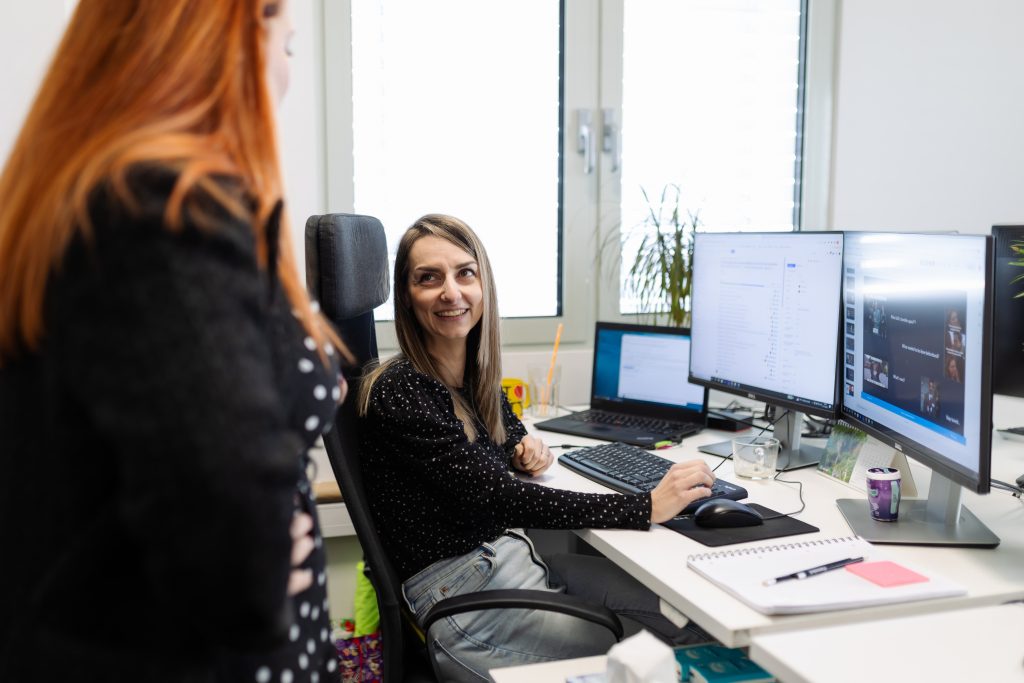
Writing documentation is often considered a hassle for most people. It is time-consuming, not everyone has a natural aptitude for it, and many find it unenjoyable.
However, the value of having comprehensive documentation readily available when it is needed cannot be overstated. Despite the effort it requires, the benefits of well-maintained documentation are immense. It provides crucial support for troubleshooting, helps in onboarding new team members, ensures consistency in processes, and facilitates better communication across the organization. This is why, despite its challenges, creating thorough and accessible documentation is absolutely essential.
At Lemax, we acknowledge that we are not perfect, and neither is our documentation. It is an ongoing effort that continuously evolves. We are committed to improving it, knowing that maintaining comprehensive and accurate documentation is a perpetual process.
Despite the imperfections, we strive to provide valuable resources that support our team and enhance our product’s usability. This commitment reflects our dedication to continuous improvement and our understanding that documentation will always be a work in progress.
Organizing Knowledge-Sharing Workshops
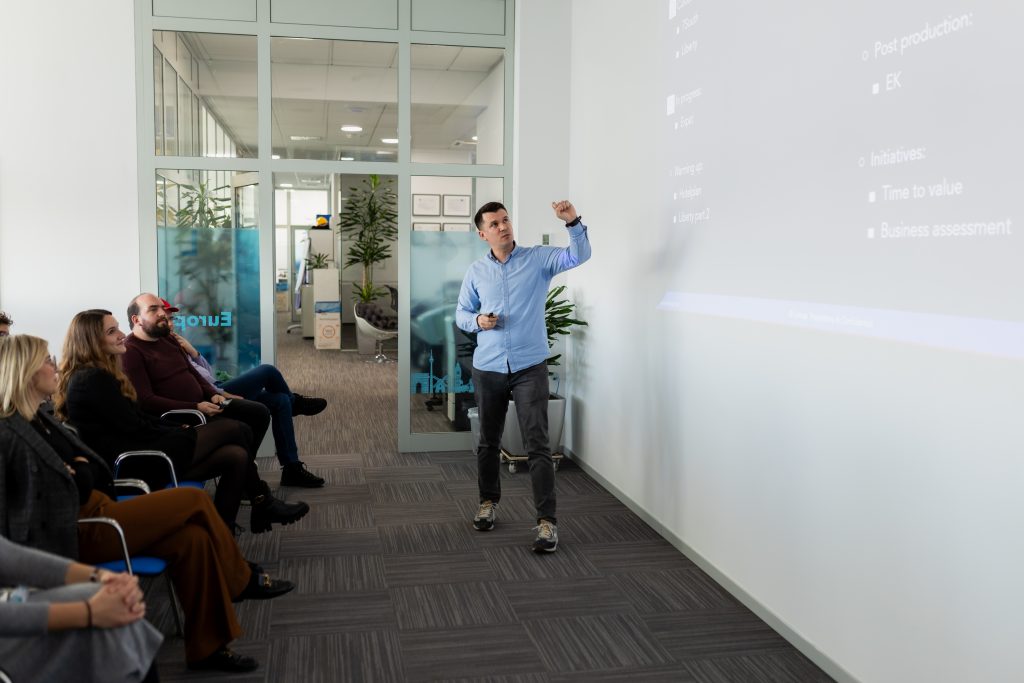
Given the complexity of the domain we’re working in and the intricacy of our product, we have deemed it necessary to organize knowledge-sharing workshops. These workshops provide a dedicated platform for addressing queries, fostering collaboration, and promoting professional development.
Organized quarterly, at least four times a year, they are designed to cater to individuals with questions or concerns regarding specific topics. These sessions serve as a valuable platform for addressing queries and providing clarification. Whether you are seeking further understanding, additional information, or simply want to address any concerns you may have, these workshops are open to anyone who wishes to participate.
Our goal is to create an inclusive and supportive environment where attendees can have their questions addressed and gain a deeper insight into the subject matter, whether it be about the domain or the product.
Commitment to Knowledge and Collaboration
In conclusion, building a successful SaaS product for tour operators requires deep industry knowledge, continuous learning, and a good knowledge management. At Lemax, we bridge knowledge gaps with having Product Specialists in our team holding daily Product Consultations and quarterly knowledge-sharing workshops to ensure our team is equipped to meet industry challenges. Along with that, we are committed to continuously improving our documentation and processes to stay ahead in the industry. While writing documentation can be tedious, it’s essential for consistency, onboarding, and efficient problem-solving.
By investing in continuous education, having a good knowledge management, and fostering a culture of collaboration and knowledge-sharing, we strive to deliver a product that not only meets but exceeds the expectations of our client. Our commitment to excellence drives us forward, ensuring that we remain at the forefront of innovation and customer satisfaction.
We invite you to read our blog that represents orientation towards our customers and our Customer Success department, which is both a source of knowledge and a collector of domain knowledge.
